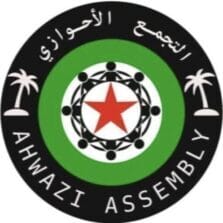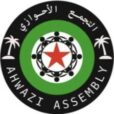Statement of the Ahwazi Assembly On the Centennial of the Occupation of the Kingdom of Arabistan (Ahwaz)
From April to April: A Century of Colonization, Resistance, and Struggle
On this day in 1925, Ahwazi sovereignty was brought to an end when Iranian Pahlavi forces, with direct support from Britain, occupied the Kingdom of Arabistan and its capital, Muhammarah, and kidnapped its legitimate ruler, Amir Khazal al-Kaabi.
This marked the beginning of a dark era of colonization and oppression that continues to this day. This act constituted a blatant violation of the right to self-determination and opened the door to a long series of massacres and crimes targeting the Ahwazi people, their identity, culture, and national rights. The first massacre occurred in response to the popular uprising known as the "Revolution of the Youth" in Muhammarah, which took place in the early months following the occupation. The revolt was met with artillery repression and naval shelling from the vessel Khuzestan, resulting in the martyrdom of at least 700 Ahwazi Arabs, according to official documents from the time. Second, 300 Ahwazi detainees were executed in the city of Ahwaz following the entrance of Reza Shah Pahlavi’s forces into Muhammarah. Third, 100 Arab Ahwazi farmers were killed during the suppression of an uprising that erupted across most villages in Arabistan in 1928. Fourth, 80 resistance fighters were martyred in the Battle of Al-Wenj, led by Haidar al-Talil. Fifth, 1,500 people from the regions of Bani Toraf and Hawizeh were forcibly deported on foot to Tehran; over 1,200 of them died during the march—a crime of forced displacement punishable under international law. Sixth, the Muhammarah Massacre of 1979, which resulted in the killing and wounding of more than 500 people. Seventh, the April 2005 Massacre, in which 53 people were killed during peaceful protests against demographic engineering policies aimed at altering the population balance to the detriment of the Arab population. Eighth, the Ma’shour Massacre of November 2019, in which more than 150 Ahwazi Arab protesters were killed using both light and heavy weaponry. All of these crimes represent grave violations of international humanitarian law and amount to crimes against humanity.
Legal, Cultural, and Social Consequences of the Occupation:
The occupation was not merely geographical—it transformed Ahwazi life on every level:
Legally:
The political entity of Ahwaz was dismantled and forcibly incorporated into the structure of the Iranian state without any referendum or consultation with the Ahwazi people. The Ahwazi population was denied even the most basic political and civil rights, including the right to form political parties and participate in determining their own future.
Culturally:
A systematic policy of Persianization was imposed, including the banning of the Arabic language, distortion of history, and the renaming of cities, villages, and geographical landmarks. The Ahwazi people were criminalized for engaging in any independent cultural activity, and poets, intellectuals, and national activists were pursued—and many were assassinated.
Socially and Economically:
Despite the region's wealth in oil resources (formerly the Kingdom of Arabistan), the Ahwazis suffer from the highest rates of poverty and unemployment. Rivers and marshlands were dried up, the environment was devastated, and the local Ahwazi population was denied access to water resources. Demographic change policies were implemented by resettling non-Arabs in the region and granting them economic privileges.
Means of Resistance and Continuity:
In the face of this reality, our Ahwazi people continue to stand firm, resisting occupation through awareness aand promoting their cultural identify. The uprisings of 2005, 2019, and 2021 proved that Arab identity in Ahwaz remains unbroken, and that the flame of liberation still burns. Believing that our struggle must be organized and comprehensive, we at the Ahwazi Assembly reaffirm the following points:
- Strengthening Ahwazi cultural and media efforts at home and abroad to preserve Arab identity and expose Persianization policies.
- Working to build genuine national unity that includes all regions of Ahwaz and intensifying awareness efforts in less engaged areas.
- Expanding alliances with non-Persian peoples who share with us the suffering and struggle against the hegemonic regime in Tehran.
In conclusion, we call on international institutions, parliaments, human rights and civil organizations—Arab and Western alike—and all free forces in the world to stand in solidarity with the Ahwazi people and support their struggle to halt the ongoing brutal colonial crimes committed against them.
Glory to our martyrs—from April 20, 1925, until today.
Freedom to our Ahwazi prisoners in the jails of Iran.
Victory to our Ahwazi Arab people.
Ahwazi Assembly Party

 والدفاع عن قضية الشعب العربي الأحوازي العادلة
والدفاع عن قضية الشعب العربي الأحوازي العادلة